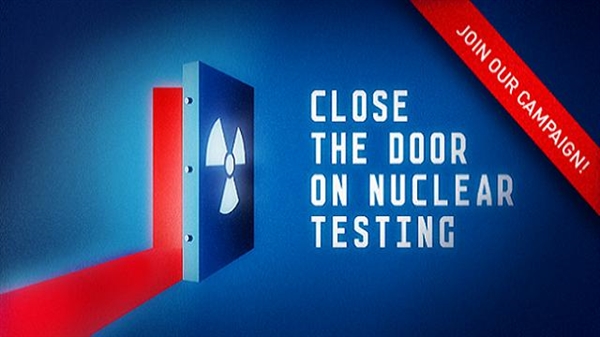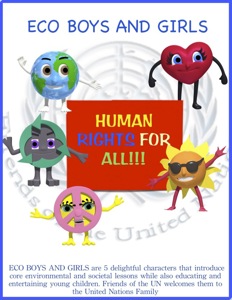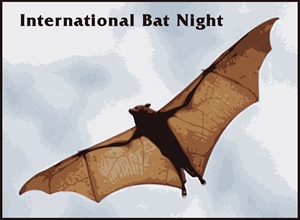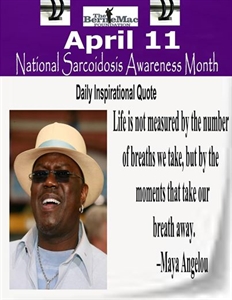International Day Against Nuclear Tests 2024 is on Thursday, August 29, 2024: Atomic bomb testing and the weather?
Thursday, August 29, 2024 is International Day Against Nuclear Tests 2024. The International Day against Nuclear Tests is observed on August 29. It was established on December 2, 2009 at the 64th session of the United Nations General Assembly by the resolution 64/35, which was adopted unanimously.
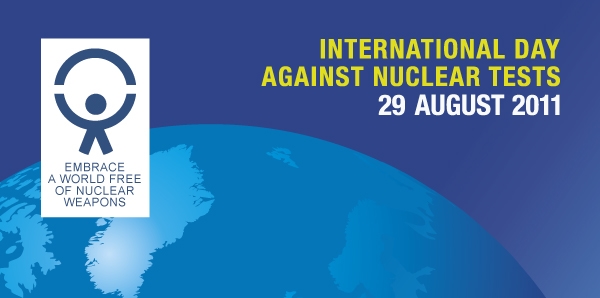
The International Day against Nuclear Tests is observed on August 29. It was established on December 2, 2009 at the 64th session of the United Nations General Assembly by the resolution 64/35, which was adopted unanimously.

Yes, Samuel
History--Scientists realized, however, that a nuclear explosion releases an immense amount of energy and produces large amounts of radioactive dust. On the morning of August 6, 1945 the atomic bomb transformed a clear day with scattered clouds over Hiroshima into a fire storm that generated huge cumulonimbus clouds, lightning, thunder, and black rains that drenched the scorched and devastated city. Scientists soon learned that radioactive fallout from a nuclear explosion spread in an ominous plume downwind and circled the globe at high altitudes in the jet stream.
Although scientists and the military discounted any direct connection between atomic bombs and the weather, the public suspected more sinister connections. Nuclear explosions were blamed for tornadoes in the United States, floods in Germany, drought in Siberia, and climate warming in the Northern Hemisphere. In 1954 fallout from a large H-bomb test necessitated the evacuation of the Marshall Islands and contaminated a Japanese fishing vessel, Lucky Dragon. Insidious new toxins such as radioactive iodine and strontium-90 quickly found their way into the food supply and the environment.
The resulting international outcry prompted the creation of the Committee against A & H Tests. In 1963, following a long crusade spearheaded by non-governmental groups and supported by meteorologists, the three nuclear nations - the United States, Great Britain and the Soviet Union‹signed and ratified the Limited Test Ban Treaty which banned atmospheric nuclear testing. One year later China conducted an atmospheric test and became the world's fourth nuclear nation.
In short--Not only can a large explosion destroy human life, it can change the climate on a global scale and impact local and world-wide geology and weather conditions "for years to come," as these huge explosions from the past 200 years have shown us.
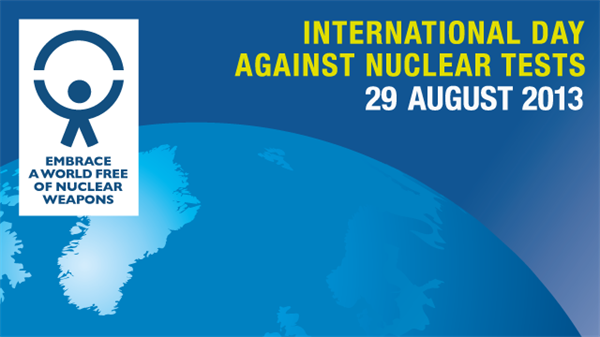
Is there controversy about the nuclear bomb in Japan?
The Japan Council against Atomic and Hydrogen Bombs (Gensuikyo) was established in September 1955. Since then it has waged various kinds of campaigns for: the prevention of nuclear war; the total ban on and the elimination of nuclear weapons; and support and solidarity with Hibakusha (victims of the atomic bombing.) The council's founding followed the first World Conference against A & H Bombs, which was held in August of the same year in the wake of the U.S. hydrogen bomb testing at the Marshall Islands in the South Pacific. The test, code named "Bravo", had victimized, along with a number of the islanders, many Japanese fishermen. The Japanese people was outraged for being exposed to the nuclear weapons for the third time after Hiroshima and Nagasaki and felt the need to establish an organization that would take charge in mobilizing national movements against nuclear testing and nuclear weapons.
Gensuikyo is an non-governmental and an umbrella organization constituted by local Gensuikyos of all of the 47 prefectures of Japan, and some 50 national organizations (such as trade unions, women, youth/students, religious, lawyers organizations) and individuals that share the same goals. Its action program is discussed and decided by its board members at annual national council meeting.
Gensuikyo sends delegations to international conferences related to nuclear disarmament, including the annual U.N. General Assembly and Nuclear Non-Proliferation Treaty. It also participates numerous international conferences not only on disarmament issues but also on broader issues related to war and peace.
Gensuikyo has also sent delegations to meet with nuclear victims of other parts of the world and worked in solidarity with the victims and peace organizations of those countries. Those places include, the United States, the former Soviet Union, the U.K., French Polynesia, the Marshall Islands, Fiji and India.
Gensuikyo is a member of International Peace Bureau (the IPB) and its Secretary General, Hiroshi TAKA, serves a vice-president of the IPB.
(June, 2003)
Introducing the Japan Council against Atomic and Hydrogen Bombs (Japan Gensuikyo)
Japan Council against Atomic and Hydrogen Bombs (Japan Gensuikyo) was founded on September 19, 1955. In the background of the founding of the organization was the damage and suffering from nuclear weapons brought to Japan on three occasions: Hiroshima, Nagasaki and Bikini.
The United States dropped atomic bombs on Hiroshima on August 6 and on Nagasaki on August 9, 1945. The enormous destructive power of the heat rays, blast pressure and radiation of the atomic bombs created a hell on earth beyond human imagination. The number of those who were killed instantly on that day or those who had died by the end of 1945 after much suffering were 150,000 in Hiroshima and 70,000 in Nagasaki (±10,000 respectively). The total number of the Hibakusha (A-bomb victims) who had died by the end of 1995 was about 340,000, and at present, there are 290,000 Hibakusha survivors.The U.S., fearing that if the truth about the A-bombing were disclosed and known to the world it would be charged with violation of international law, made an official announcement at the beginning of September 1945, only 1 month after the atomic bombing, saying that those who were doomed to die have all died and now there is no one who is still suffering from the A-bomb radiation. A strict Press Code was imposed on all reports regarding the atomic bombing and the damage it caused. The Japanese government, under full occupation of the U.S forces, cooperated with the U.S. and stopped the relief activity for the survivors, leaving them in pain and suffering for a long time.
This hydrogen bomb test was code-named "Bravo", and was conducted by the U.S. on March 1, 1954 at Bikini Atoll in the Marshall Islands in the Pacific Ocean, where a Japanese tuna fishing boat "The Fifth Lucky Dragon" was smothered with deadly fallout, causing the death of one crewmember later that year. The destructive power of the hydrogen bomb was about 1,000 times that of the Hiroshima-type A-bomb, and it caused extensive pollution around the test area, including the Marshall Islands. At the time, not only the Fifth Lucky Dragon, but as many as 856 Japanese fishing boats with some 10,000 crewmen on board were operating in the surrounding area and were exposed to radiation. It also had a serious impact on the Japanese people as a whole, as a result of the polluted fish.
This incident again brought home to the Japanese people the terror of atomic and hydrogen bombs. The signature campaign to prohibit A-and H-Bombs triggered by the incident spread all over the country and withi
Is North Korea really testing nuclear weapons?
yes but the US knew ALL about it beforehand...
WASHINGTON, Feb. 12 (Xinhua) -- The Democratic People's Republic of Korea (DPRK) had informed the U.S. government before it carried out its third nuclear test, State Department spokeswoman Victoria Nuland said on Tuesday.
"The DPRK did inform us at the State Department of their intention to conduct a nuclear test, without citing any specific timing," she said at a regular briefing.
Without giving further details, Nuland only told reporters that the DPRK informed the U.S. government through the "usual" diplomatic channel "prior to the event."
"But we were advised," she noted.
The DPRK said on Tuesday it had successfully conducted the third underground nuclear test, according to the official KCNA news agency.
The test was part of the country's "practical measures of counteraction" to defend its security and sovereignty against hostile U.S. policies that have violated DPRK's "rights to launch satellite for peaceful purposes," the KCNA said in a statement.
Earlier the day, U.S. President Barack Obama condemned the nuclear test as "highly provocative," while urging for "further swift and credible action" by the international community.
The UN Security Council on Tuesday also strongly condemned the nuclear test, saying the latest move by Pyongyang "is a grave violation" of relevant resolutions of the UN Security Council....

